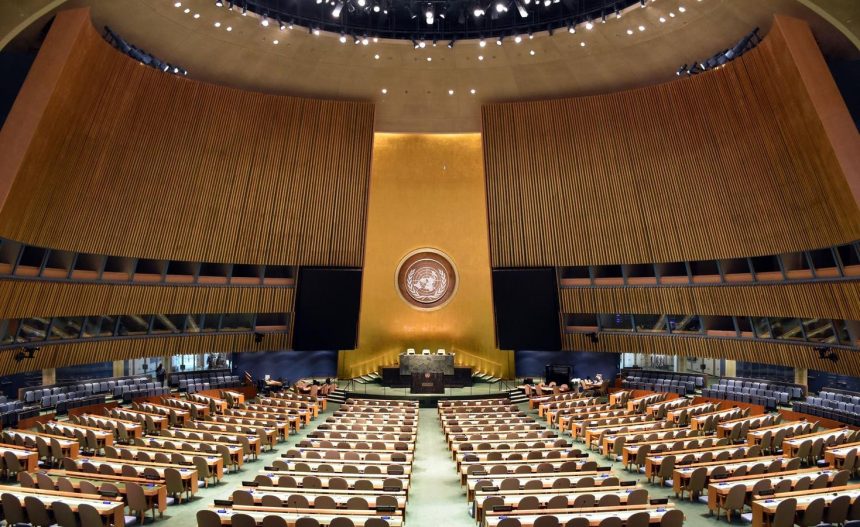The international community took a decisive step towards codifying the prevention and punishment of crimes against humanity with the adoption of a landmark resolution by the United Nations Sixth Committee on November 22, 2024. This resolution sets in motion a concrete process for the development of a dedicated international treaty, marking a significant advancement in international criminal law. The resolution outlines a clear timeline, including preparatory sessions in 2026 and 2027, followed by intensive negotiations in 2028 and 2029, culminating in the finalization of the treaty. This initiative aims to fill a critical gap in international law, establishing explicit obligations for states to prevent and punish these heinous crimes, thus bolstering the fight against impunity and ensuring accountability for perpetrators. The global significance of this undertaking was underscored by numerous delegations who expressed their hope for a world free from crimes against humanity.
The driving force behind this resolution stems from the recognition that the existing international legal framework, while addressing other atrocities like genocide, torture, apartheid, and forced disappearances, lacks a comprehensive instrument specifically dedicated to crimes against humanity. Currently, the Rome Statute of the International Criminal Court (ICC) defines crimes against humanity but doesn’t impose specific preventative obligations on states. The envisaged treaty is poised to rectify this deficiency, providing a dedicated legal framework for prevention and punishment, complementing the ICC’s jurisdiction. This proactive approach aims to prevent the occurrence of these atrocities, rather than solely relying on post-facto prosecution.
The journey towards this momentous resolution has been marked by years of dedicated work by the International Law Commission (ILC), the UN body responsible for the development and codification of international law. In 2019, the ILC presented its Draft Articles on Prevention and Punishment of Crimes against Humanity to the UN General Assembly, laying the groundwork for the treaty’s development. Following this, the Sixth Committee of the UN General Assembly engaged in extensive debates and deliberations, culminating in the 2024 resolution to formally initiate treaty negotiations. The ILC’s Draft Articles will serve as the foundation for the treaty, providing a solid legal basis for discussions and ensuring a robust and comprehensive final document.
A crucial element of the draft articles, and subsequently the future treaty, is the emphasis on prevention. Article 4 specifically outlines the obligation of states to prevent crimes against humanity through effective legislative, administrative, judicial, and other appropriate measures within their jurisdiction. This proactive approach underscores the international community’s commitment not only to punishing perpetrators but also to preventing these atrocities from occurring in the first place. The treaty also emphasizes international cooperation, requiring states to collaborate with other nations, intergovernmental organizations, and relevant bodies to effectively prevent crimes against humanity. This collaborative approach recognizes that a global challenge demands a concerted global response.
The international community has expressed strong support for the treaty initiative, recognizing its profound moral, legal, and political significance. Delegates from various states, including Gambia, Palestine, Jordan, and Mexico, lauded the resolution as a historic step towards ending impunity and ensuring accountability for perpetrators. They emphasized the treaty’s potential to bring justice to victims and prevent future atrocities. The widespread support for the treaty reflects a global consensus on the urgency of addressing crimes against humanity and strengthening the international legal framework for their prevention and punishment.
The future treaty on crimes against humanity holds immense potential to transform the international legal landscape and significantly enhance the protection of human rights. By codifying obligations for prevention and punishment, it will provide a powerful tool for holding states accountable and deterring future atrocities. The treaty is expected to clarify the definition of crimes against humanity, further strengthening the legal framework and ensuring consistent application across jurisdictions. This comprehensive approach, encompassing both prevention and punishment, marks a crucial step towards a world free from crimes against humanity, where victims can find justice and perpetrators are held accountable. The road ahead involves complex negotiations, requiring continued commitment and collaboration from all states. However, the momentum generated by the UN resolution signals a collective determination to make this treaty a reality, ushering in an era of enhanced protection for human rights and accountability for the most serious violations of international law.



